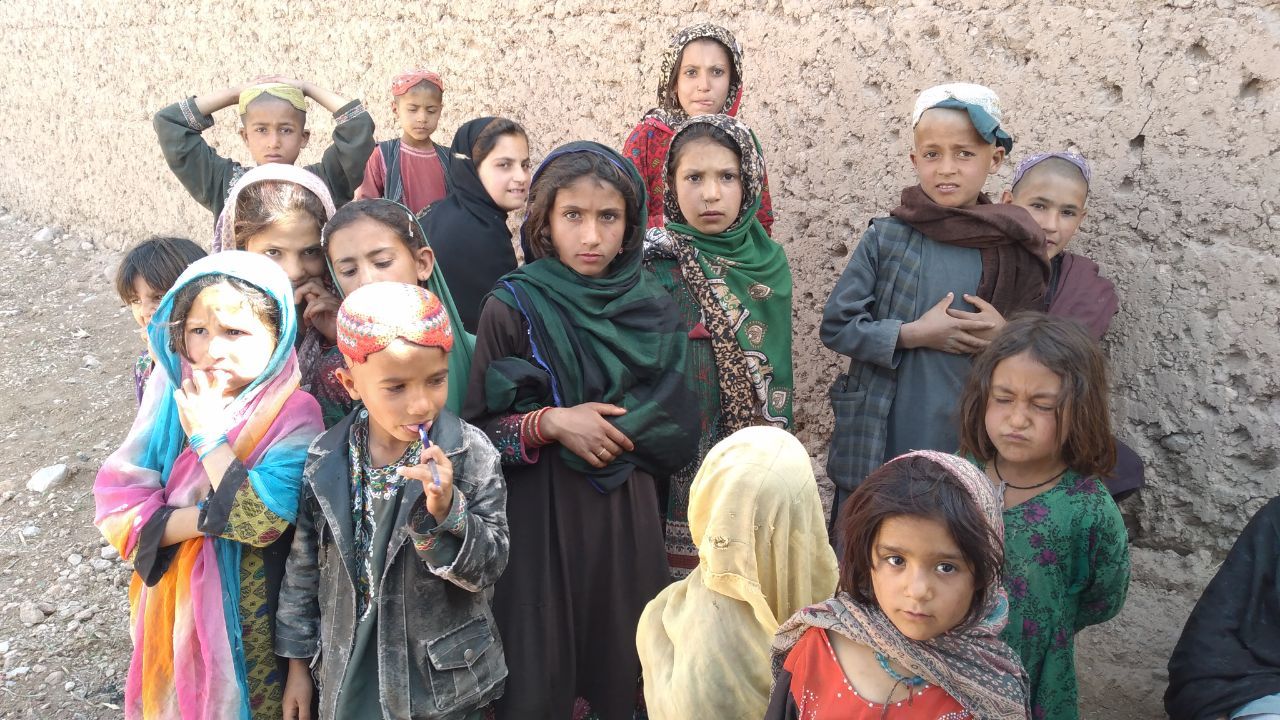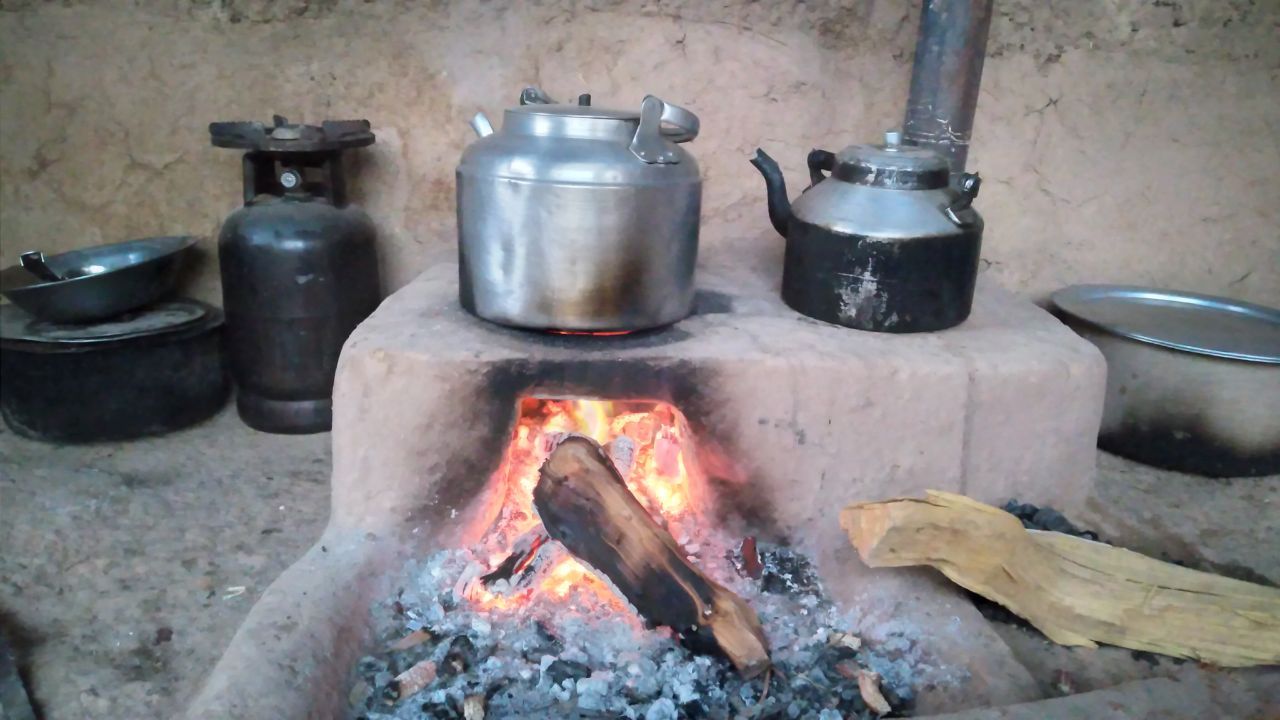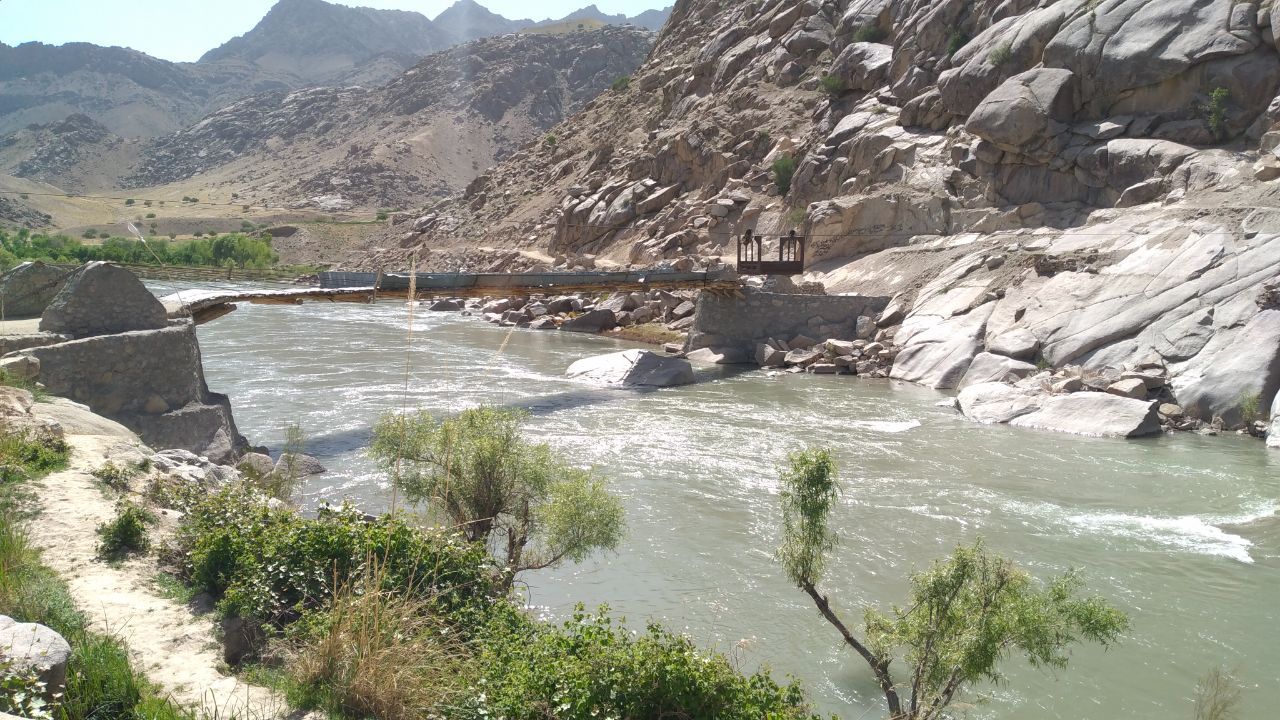Lifting the Veil; Life for Women in Rural Afghanistan
The women of Gizab, a district in Afghanistan’s central Daikundi province live a life confined to the four walls of their home while betrothed against their will for a dowry that, unless rich, cannot be paid for years.

Written by Sima Siawash
GIZAB, DAIKUNDI — While western women fight for equality in the workplace and the world at large, in rural Afghanistan women remain bound by strict gender roles and are confined to their dwelling unless accompanied by a male escort, usually a husband or family member.
Open air courtyards enclosed by high walls are ubiquitous in rural Afghan households, and for good reason. They are designed specifically to allow women to perform domestic duties outside without having to worry about being seen by nosey neighbors. While having a private garden may be a luxury in much of the world, in Afghanistan they act as a gilded cage for women who risk harassment, physical punishment, or social ostracization if they dare venture outside the confines of their home.
Daikundi is predominantly populated by Hazaras. In 2021 Gizab, a Pashtun dominated district, was annexed from neighboring Oruzgan and became part of Daikundi. The two ethnic groups are different in many ways. One of the most stark is how women at home are treated. Typically, Hazara women don’t endure as many restrictions as Pashtun women.
The previous government failed to take full control of Gizab, and brought no changes to the lives of the people there. Nor did the government have the ability to enforce laws or influence the local culture. People in this district have also played a part in keeping the district the way it is.
Contrary to the Daikundi capital and other districts, the residents of Gizab believe that the presence of women in public is shameful. They do not allow men who are not related to meet their women. For women in Afghanistan, opposing the restrictions imposed on them can be deadly. The consequences for those who disobey include physical violence and even murder, leaving them with little alternative to a life of servitude under a male-dominated culture. The residents of Gizab reject anything which is in contradiction to their traditions.

This district has little awareness of the wider world and the modernization seen elsewhere in Afghanistan has not penetrated Gizab’s long-held traditions. None of the homes visited had a TV or other electronics that might assist in expanding awareness and entertainment for these people. Additionally, there is no variety in their daily activities, everyone’s livelihood is based on either farming or shopkeeping.
The women are busy cooking, washing and looking after their children from sunup to sundown. Their days are spent cooped up inside their courtyard, nothing to see but the monotony of a discolored world surrounded by the formidable mud walls built by the overzealous men of their households.
Men marry and confine women into these spaces, not permitting them to venture outside, even if they are unable to take care of them.
Tired of their husband’s disheveled and unkempt faces, the women remain silent, fearing the repercussions of expressing any kind of discontent. Women hurt and heartbroken by their husbands’ opinions and suspicions. Women whose lives are filled with domestic abuse, both physical and emotional.
They speak of men who have never considered a woman’s needs or opinions important. Men who see women as property and see no difference between their wife and the wife of a neighbor. Men who see women merely as sexual objects, and objects of lust.

17 year-old Palawsha Mujahid’s biggest desire for her future husband is to be clean, and not wear a beard or scarf as is common among Pashtuns. But she says it’s only a delusion or a dream, “Because if I marry someone outside my tribe, my father will kill me.”
Although the overwhelming majority of Afghans are Muslim, Islam is not the only factor influencing the local marriage. Marrying someone from a different ethnic or religious group may mean a severe or even fatal punishment.
“I must wear a burqa and live with a husband whose appearance will quash me all my life,” Palawasha said.
Unfortunately, the fate of some girls in the district is even grimmer. The sale and forced marriage of girls as young as 13 to older men who are already married seems to be the norm in the Gizab district. Young girls are treated like property and sold to the highest bidder like livestock. The dowry of a young girl is higher for a married or older man, and it is lower for young single men.
But even with a lower dowry, some men are unable to marry their fiances for years because they are unable to cover the cost of the dowry. Instead,they are forced to spend years working and saving \to afford the cost.
Girls who are engaged must remain living in their parents’ homes until the dowry is paid in full. Because of the steep price attached to their hand in marriage, they often bear two or three children without being formally married. In Islam once Aqd or Nikah, meaning a contract, has been performed, the man and woman in questions become mahram, a person that the woman is allowed to see, talk to and legally share a life with. This agreement is what allows the couple to consummate the union without having gone through an official marriage, leaving them in a sort of limbo until the dowry is fully paid.
Currently the cost of a dowry for older men seeking to marry young wives in the district is between 1,400,000 to 1,500,000 Pakistani rupees ($6,500 to $6,981), while the cost of a dowry for young men is 800,000 Pakistani rupees ($3,723). A number of Afghan provinces trade primarily in a neighboring currency such as the Pakistani rupee or Iranian Toman.
Another absurd tradition in this district and common in other areas of Afghanistan, is betrothing a widow to the dead husband’s brother without any consent or comment from the woman herself.
Although the Holy Quran does not prohibit a man from marrying his brother’s widow, it does insist that if it were to be done, it should be treated as a normal marriage with the consent of the woman and a mahr.
A Mahr is a religiously mandatory payment of money or possessions usually set by the bride’s family and paid by the groom, different from dowry which is culturally enforced rather than dictated by religion.
The cultural aspect, separate from Islamic Sharia law, is that a widow must live in the house she married into until the end of her life, and must marry her former husbands’ brother(s). If one brother dies, she marries the other and so on in perpetuity. These widows are not allowed to marry another man from outside the family. This is one of the reasons that the size of the average household in Gizab is at least 8.

A Gizab resident who spoke to Alive in Afghanistan on the condition of anonymity said he has been unable to marry his fiancé due to the high cost of her dowry. Since their engagement they have had two children, all while living in his father-in-law’s home. In the last few years he traveled twice to Iran seeking work, hoping to earn the money needed for his bride’s dowry.
18 year-old Mina Saifullah has been engaged for the past year but has yet to meet her fiance. Mina’s father was killed in a car accident and, following tradition, her paternal uncle married her mother. He is now the caretaker for Mina, her mother, two brothers and one sister in addition to five children from his first wife.
“He cannot take care of anyone properly,” Mina told Alive in Afghanistan.
Hafizullah Abid, a 30 year-old resident of Gizab told Alive in Afghanistan that he has paid off half of the 800,000 Pakistani rupees ($3,695)) set for the cost of dowry. Mr. Abid lives in his father-in-law’s home, has two children and also traveled to Iran seeking work to pay off the cost of the dowry.
Families repeatedly refuse to marry their girls to young men who are not financially well off. Even if the bride’s family does agree, young men do not have any option except to migrate to neighboring countries forwork in the hopes of saving enough money to afford the exorbitant dowry costs. Meanwhile a number of young girls refuse to wait indefinitely and resort to running away from home to marry the man they want.
“Every year one or two girls flee to Shiran to marry. But the tribal elders understand the sensitivity of the issue and resolve it by talking to the elders of the community the girls fled from, which always means the girl is returned to her community and family. Upon returning home, the girls face horrific abuse including imprisonment in their home and potentially honor killing,” Adibiyan Ba Honar, a 23 year-old girl from Shiran, a Hazara-dominated area in Gizab, told Alive in Afghanistan.
In addition to the restrictions placed on women by their families, girls lack access to education. Currently there are no active schools in Gizab, the third district Alive in Afghanistan has found to have no schools. In addition to this, the lack of access to education for girls above 6th grade across most of Afghanistan means that the new generation may inherit the same habits of their ancestors, without seeing any improvement to their way of life. Please read Alive in Afghanistan’s No School for This District, The Children Who Have Never Set Foot in School, as well as other articles about the situation of Education in Afghanistan.
